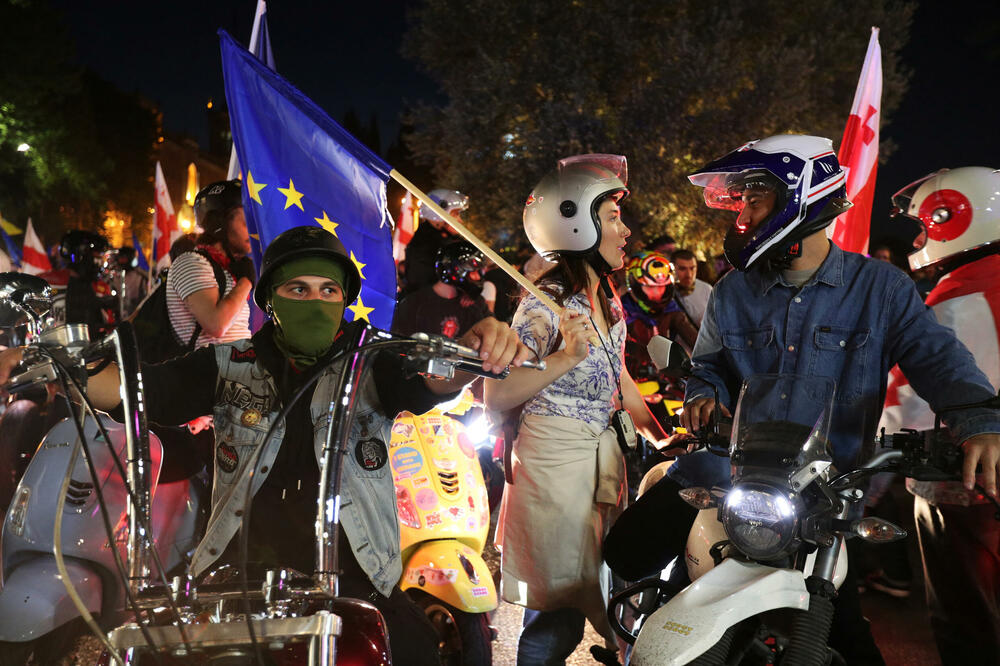Journalists from print and online media will not have access to a plenary session of Georgia's parliament on April 29, authorities said, amid growing protests against the ruling party's plans to introduce a law that domestic critics and Western countries said would be used to suppress independent voices.
The hearing comes after an estimated 20.000 people took to the streets of Tbilisi again on April 28 to express their opposition to the so-called "foreign agents" law, which many say mirrors one used by the Kremlin to silence its critics, and which Georgian MPs should discuss in the second reading on April 30.
The April 28 protest was a continuation of two weeks of rallies led by opposition parties and activist groups against the law, which passed first reading earlier this month.
Thousands of people gathered in Republic Square in central Tbilisi on the night of April 28, many singing Georgian and European Union anthems and holding EU banners.
The protest continued into the early hours of April 29, with reports that some protesters broke through security lines near the parliament building, prompting police to use tear gas and pepper spray without warning to disperse the crowd.
The last few dozen protesters remained near the parliament until three in the morning local time before dispersing.
The press center of the parliament announced on April 29 that entry into the building is prohibited only to visitors, except for those "invited by the competent structures".
The press center announced that only journalists from accredited TV stations will be allowed to enter the building, and for "security" reasons, journalists from online and print media are not allowed to work in the parliament.
A bipartisan group of US senators warned in a letter to Georgian Prime Minister Irakli Kobakhidze on April 26 that the nation's plan to reintroduce a "Russian-style foreign agent law" could lead to a shift in US policy towards Tbilisi.
In a letter obtained by Voice of America (VOA), the senators said they were "increasingly concerned that Georgia's transatlantic aspirations are being undermined."
EU officials have said that if Georgia passes the bill into law, it would derail the nation's membership hopes.
The ruling Georgian Dream party introduced the law in 2023, but was forced to withdraw it after mass protests. The parliamentary group of this party returned the law with minor changes to the text and it passed the first reading on April 17.
The debate on the final reading of the bill should be on May 17. Georgian President Salome Zurabishvili told the BBC she would veto it if it was approved in the final reading.
Zurabishvili said her main concern is the fact that the law is "exactly a copy of (Russian President Vladimir) Putin's law."
However, Zurabishvili said the ruling Georgian Dream party has enough MPs to outvote it if it does use its veto.
Mamuka Mdinaradze, leader of the Georgian Dream parliamentary faction, said earlier this month that the party plans to reintroduce the law, which would oblige non-commercial organizations and media that receive foreign funding and that engage in broadly defined "political" activities to report their activities to authorities.
It would also introduce broad surveillance powers by authorities and potential criminal sanctions for undefined offences.
Former Georgian Prime Minister Irakli Garibashvili, chairman of the Georgian Dream party, and other party leaders say the law aims to increase transparency in the country's political environment.
Bonus video:





